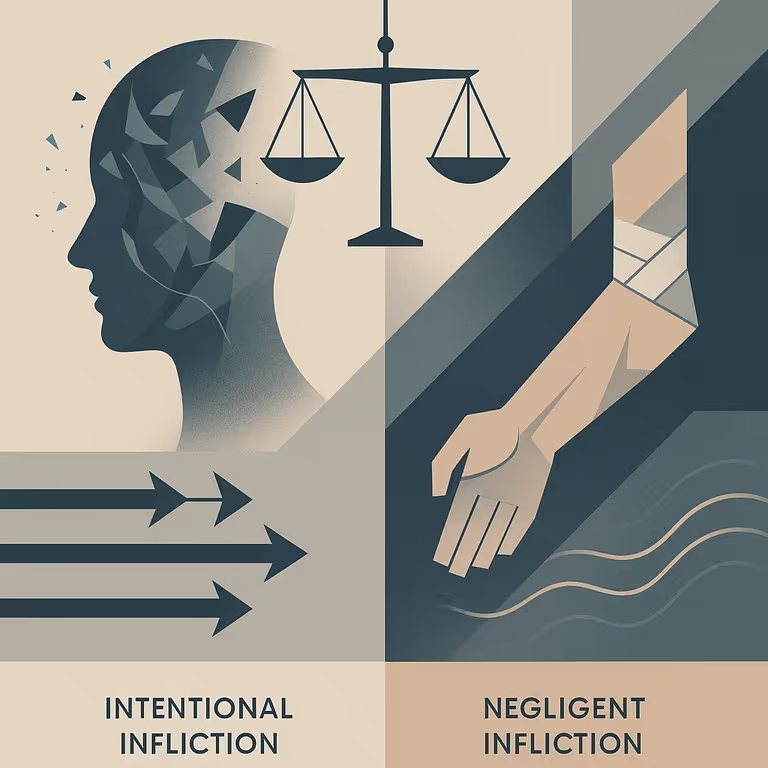7 Tips for Winning Cases
Discover 7 crucial tips for winning legal cases from The Law Offices of Douglas R. Beam, P.A. Learn how to meet deadlines, choose the right trial type, prepare evidence, and maintain proper courtroom decorum to increase your chances of success.

Worried About Your Injury Case? We'll Review It - Free!


7 Tips For Winning Cases
Winning cases is not always the most important thing, but it is exactly what our clients pay us to do. Without guaranteeing anything we always want to make sure that our clients get the best kind of protection from us, and it is our job to provide them with legal guidance that would help them throughout the whole process of what they are facing.
With that in mind, these are 7 tips for winning cases that you should know about.
What are the 7 tips for winning cases?
Always Meet Your Deadlines

The most important tip that any practicing lawyer can give you is to make sure that you always meet your deadlines. Whether it is your deadlines at your law firm or in court, you should always pay attention to when things are due. We recommend that you file your paperwork as soon as you finish it, and that you keep a calendar either physically or on your phone or computer.
The reality shows that in come instances lawyers lose cases not because of the merits of the case, but because they failed to file the necessary paperwork. Lawyers should aways keep in mind that once you start filing for a case, there will be more deadlines as the case continues. For example, there will always be deadlines when requesting a jury trial and calling a witness, or planning the schedule of the trial. You always have to be on your feet when after receiving the summons for your client.
As lawyers know, there are specific rules for you to follow in the court of law. Lawyers cannot pass the bar exam without knowing these specific rules and deadlines, but we recommend keeping yourself up to date on the guidelines of the court.
The repercussions of failing to meet your deadline go beyond losing the case. You will also face penalties from the judge and it will tarnish your reputation for the long run.
Choose The Right Kind of Trial For Your Case

There are some instances where a jury trial is what is necessary for your case, but in many instances, a jury trial can be set aside for a judge only to decide on your case. The decision on whether or not you will have a judge or full jury depends on the merits of the case what your case is about.
Depending on your case, some judges will be in a better position to apply the law in an unbiased manner while in others, having a jury to decide the outcome is best. Being able to determine the best path for a case can help you earn respect in your field, and do what is best for your client. Follow the strategy that works best for your individual case. After all, if you cannot win on the merits of the case, you may win on a technicality alone.
Learn The Specific Elements of Your Case

It should go without being said but it is always vital to learn all of the elements of your case before moving forward. Being able to assess how the case should be handled allows you to determine the correct processes moving forward.
On the other hand, there are instances where your client would be the one to receive summons from the court and you will be pressed for time to answer it. Either way, you must learn the specific elements of your case and be able to make those judgements in a timely matter.
Memorizing and learning the specific details and elements of your case allows you to have an edge in the court of law. You will have a better opportunity to prove your point clearly and more coherently. Always keep in mind that understanding the specific elements are important if you want to win the case.
Make Sure That All Your Evidence Is Admissible

Depending on your particular case, the existence or nonexistence of evidence can matter significantly. Even if you have a murder weapon, for example, if it is not admissible in court because it has been retrieved through a process that violates the constitutional rights of the accused or that violates the rules of court, then you will not be able to use the weapon in the court of law.
With that in mind, it is important to make sure that all of the evidence you plan to use is admissible in court, and that the gathering of the evidence is in line with correct protocol set by the court. You will never win a case with evidence that is inadmissible in court.
Prepare Your Trial Notebook

When it comes to the trial you need to make sure that you have all your ducks in a row. Being organized and able to properly presentyourself is the best way for you to show up for your clients and win a case. Prepare your trial notebook in advance and update your lists of connections consistently. In this way, you will increase your likelihood of winning your case.
You always need to keep track of what is happening during each testimony, and during presented evidence and arguments. This will help you form what kind of questioning or defense you can apply. Keeping your trial notebook up to date with all details from each proceeding can help you stay organized and on top of your line of defense or prosecution.
Take Some Time To Continue Learning

Graduating from law school and passing the bar exam in your state is not the only kind of learning that you need to do. You need to continuously learn to be a student of the law. One way to do this is by making sure that you learn the ropes of the practice especially if you are in litigation. A good lawyer will spend years of his life questioning witnesses, and presenting evidence, and making arguments in court. A better lawyer knows that even if he spends years of his life doing those things as a seasoned lawyer, he still has more to learn in each case he takes on.
How do you continue learning?
One way to stay on top of the latest developments in the courtroom is to read scholarly law journals regularly and stay up to date on litigation changes. You should also take time to watch public trials in order to see how courts and other lawyers handle similar issues you may be faced with. While you may not have much time to do this, especially if you are a new associate in the law firm, you should still do your best learn from the other lawyers in your practice.
Always Practice Proper Decorum in Court

Needless to say, you should always practice proper decorum in court. The judge will see your respect in the courtroom as a sign that you are knowledgeable about what you are saying and that you are on the right side of the law. Being a lawyer requires you to be an officer and representative of the court at all times, and this includes showing the proper respect and etiquette.
How do you practice proper decorum in court?
There are different ways for you to practice proper decorum in court. Making sure you are not interrupting the judge or the opposing party is speaking helps you to maintain a composed and controlled decorum and it is a great strategy to win a case.
Pro Tip:
One extra tip that we recommend, is learning how to assert yourself when you are representing yourself as a lawyer in court. Asserting yourself does not necessarily mean being disrespectful but speaking loudly, clearly, and articulately when it is your time to speak. We believe the best way for you to win a case is to calmly represent it in pleadings and court; there are usually never any reasons to shout.
Are You Ready To Win Cases?
Now that you know the seven tips for winning cases, we believe that you are ready to start filing in court and win those cases. Your win, however, will only be guaranteed by your hard work. Keep in mind as you continue your journey as a lawyer, that these seven tips can help you on your way to succes




Not Sure What To Do Next? We Can Help – Fast & Free.
Worried About Your Injury Case?
We'll Review It - Free
Don’t miss an article
Florida law, local insights, and the occasional dog pic.
Delivered straight to your inbox.
More articles
Browse all articlesFree Case Review
Get a complimentary review of your case

.webp)








